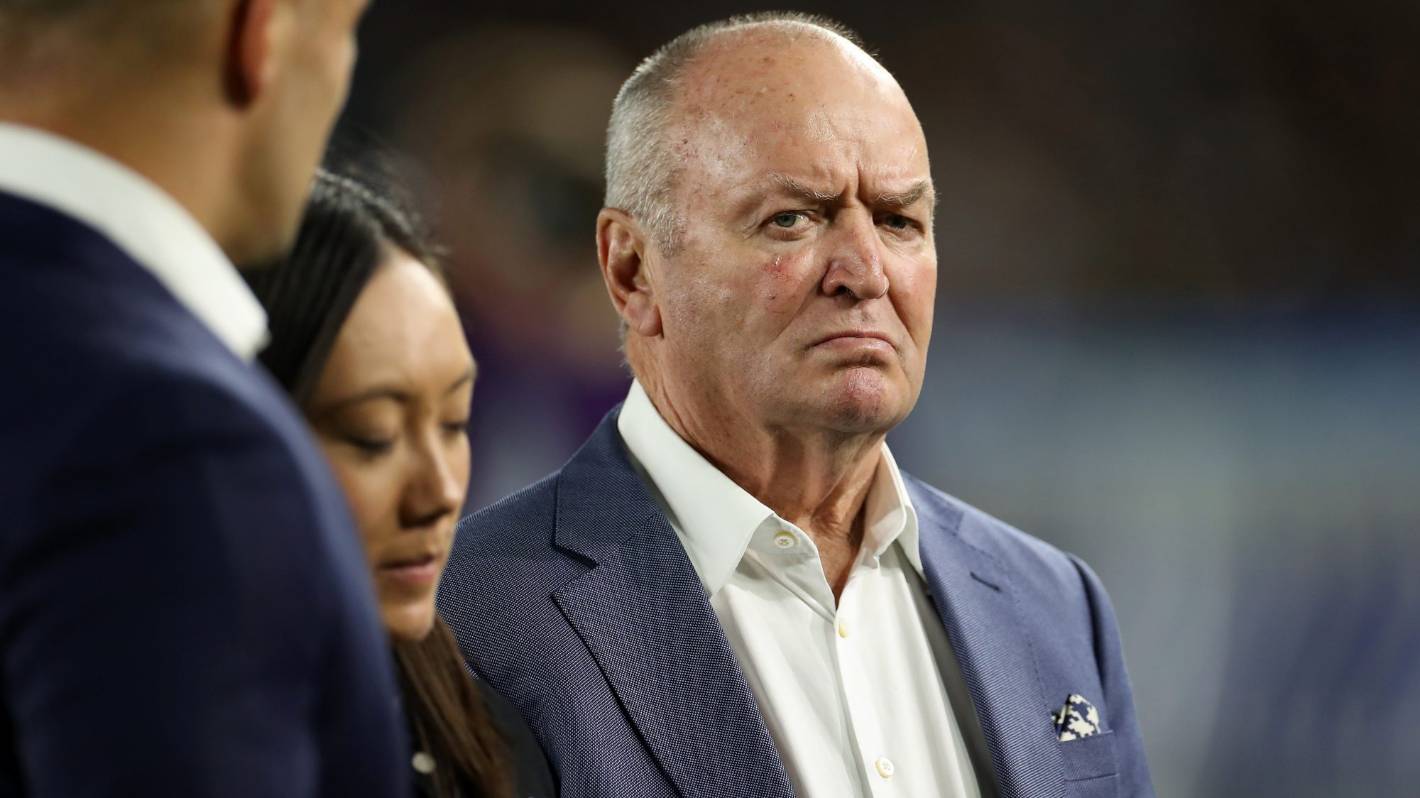New Zealand Rugby’s embrace of a possible private equity investment has received the blessing of Sir Graham Henry as a way to revive the country’s ailing community game.
Sir Graham, the All Blacks coaching great, has grown increasingly anxious about the state of the grassroots game and rugby’s decreasing hold on young people.
That concern has prompted him to speak out in favour of private equity investment – in the expectation that NZ Rugby bosses will run a fine-tooth comb over the $465 million Silver Lake proposal and remove any devil that might be lurking in the detail.
“Obviously they are doing their due diligence and are looking at it very seriously I would imagine,” Sir Graham told Stuff.
“And they have got a third party [investment bank Jefferies] who are giving them an opinion on the whole proposal, so they are doing everything they can to look at all the detail and make sure it’s OK.
“And it’s not as if Silver Lake are taking over NZ Rugby – it’s a small percentage.
“ But if it’s all good – and I’m reasonably confident it would be – I’m excited that the extra money can help the game, help the clubs and the schools, looking at the community game.
“It’s the community game that I’m particularly interested in.”
Sir Graham believes that Covid-19 aside, the professional game is in good shape. He can even live with South Africa’s departure from Super Rugby and what that might mean for the longer-term development of New Zealand players.
But he paints a sobering picture of the “brittle” community and schools game that simply isn’t catering for enough young people at present, with the community game only held together by an ageing group of volunteers who desperately need more help on the front line.
“Our game needs an injection of expertise and finance,” he said.
“The community game is shaky, brittle … and it needs a lot of thought and innovation to get the game humming again.
“We haven’t got enough people involved in the game, I don’t think.
“Since the game has gone professional, the people who have supported the game have got into an older age group and younger people are not putting the time they put into the game they used to, during the amateur years.
“So we need to expertise into schools and clubs, to generate interest again.”
Sir Graham says NZ Rugby needs to a fundamental rethink of how the game is packaged for young people, so that it appeals to the vast majority who don’t get anywhere near the elite level.
“They need an innovative product, and it won’t be the product the All Blacks are producing,” he said.
“It’ll be a different hybrid of the game, at different levels, and maybe played at different times.
“Maybe it’s not a Saturday afternoon game any more, or Saturday morning.
“Or let’s have a national competition and a New Zealand team that plays amateur under 85kg rugby.
“It’s just another way of catering for a wider group of people.”
The 2011 Rugby World Cup winner also sees worrying gaps in the schools system where young people are being lost to the game.
For example, Sir Graham said the Crusaders First XV competition was doing a good job of trying to keep youngsters in places such as Ashburton interested in the game by setting up composite sides.
However, that picture was not replicated throughout the country, Sir Graham said, and he called for greater links between schools and local clubs.
“I think some of our communities are disadvantaged by the lack of competitions where they are,” Sir Graham said.
“At the minute a kid in Kaitaia probably doesn’t have that opportunity [of the Crusaders First XV comp] and if they had a composite side in Kerikeri/Kaitaia and that great area that played in the Blues First XV competition it would cater for those kids.
“The clubs need to take over some of the secondary school rugby.
“I didn’t think I’d ever say these things, but I think a lot of the kids who are going to some of these schools are not being catered for.
“The clubs need to work with these schools and ensure there is rugby for these young people.
“What Silver Lake will do, hopefully, is provide the finance to put it into the community game and develop it and get more kids playing.”



